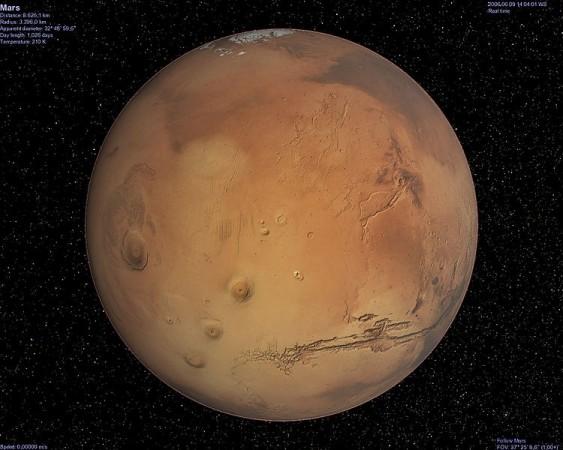
New data released from two NASA rovers - Curiosity and Opportunity - has revealed that ancient Mars may have had a favorable environment to support microbial life, reports said.
Opportunity, which landed on Mars on 25 January 2004 for a mission that was to last three months, is still active and has found that water with a neutral pH flowed on the planet around four billion years ago.
“These [benign] water conditions existed over a long period of time," Ray Arvidson, lead author of the new study and Opportunity deputy principal investigator, told Space.com, adding that primitive organisms would have been able to survive on the planet for long periods.
Plus, a lake and groundwater system dating back to around 3.7 billion years could have been habitable, data obtained from Curiosity noted.
Opportunity, which has driven just over 38.7 kilometers since it landed on Mars a decade ago, is approximately 5,200 miles away from Curiosity. And when combined, these discoveries provide scientists with a clear picture of Martian habitability.
"These results demonstrate that early Mars was habitable, but this does not mean that Mars was inhabited," John Grotzinger, lead scientist on the Curiosity mission, wrote in an introduction to the studies in the journal Science.
It was only last year that NASA confirmed Mars was habitable, based on the findings of Curiosity.
"We have found a habitable environment that is so benign, and supportive of life, that probably if this water was around and you had been on the planet, you would have been able to drink it," Grotzinger said in a news conference at the time, according to CNN.

















